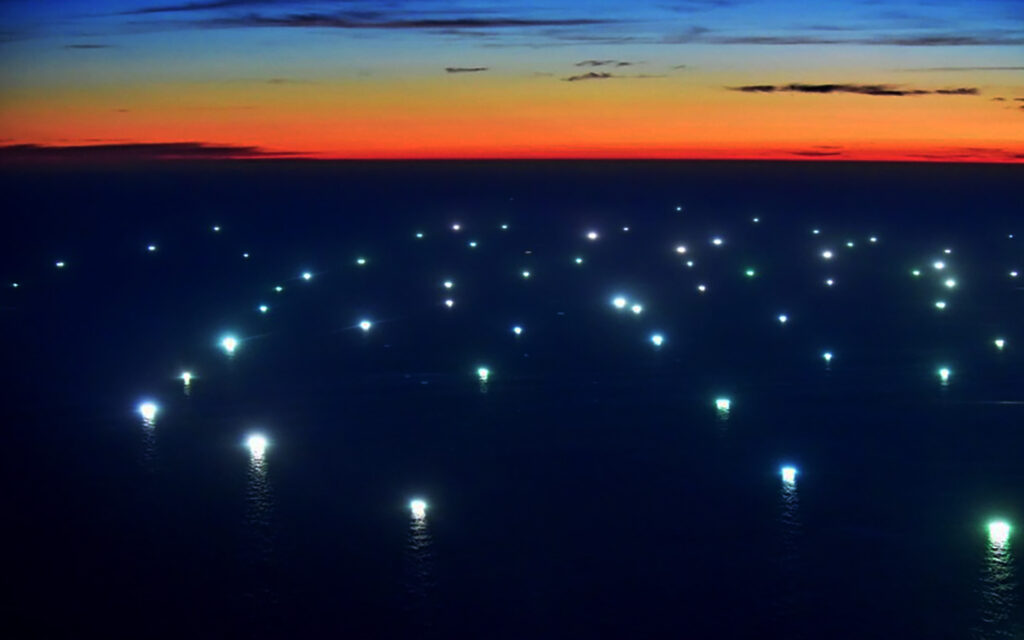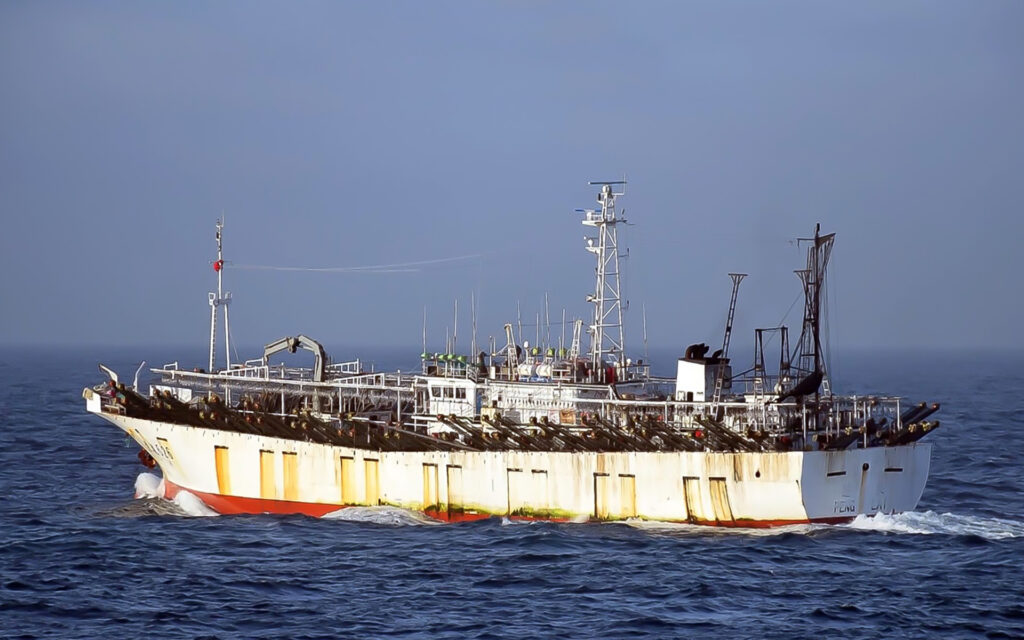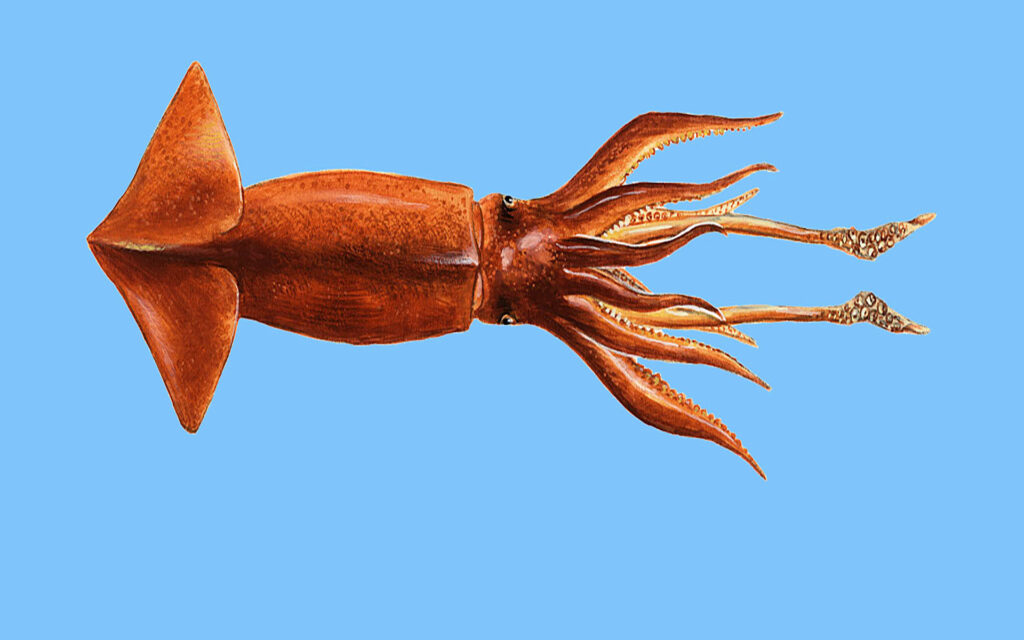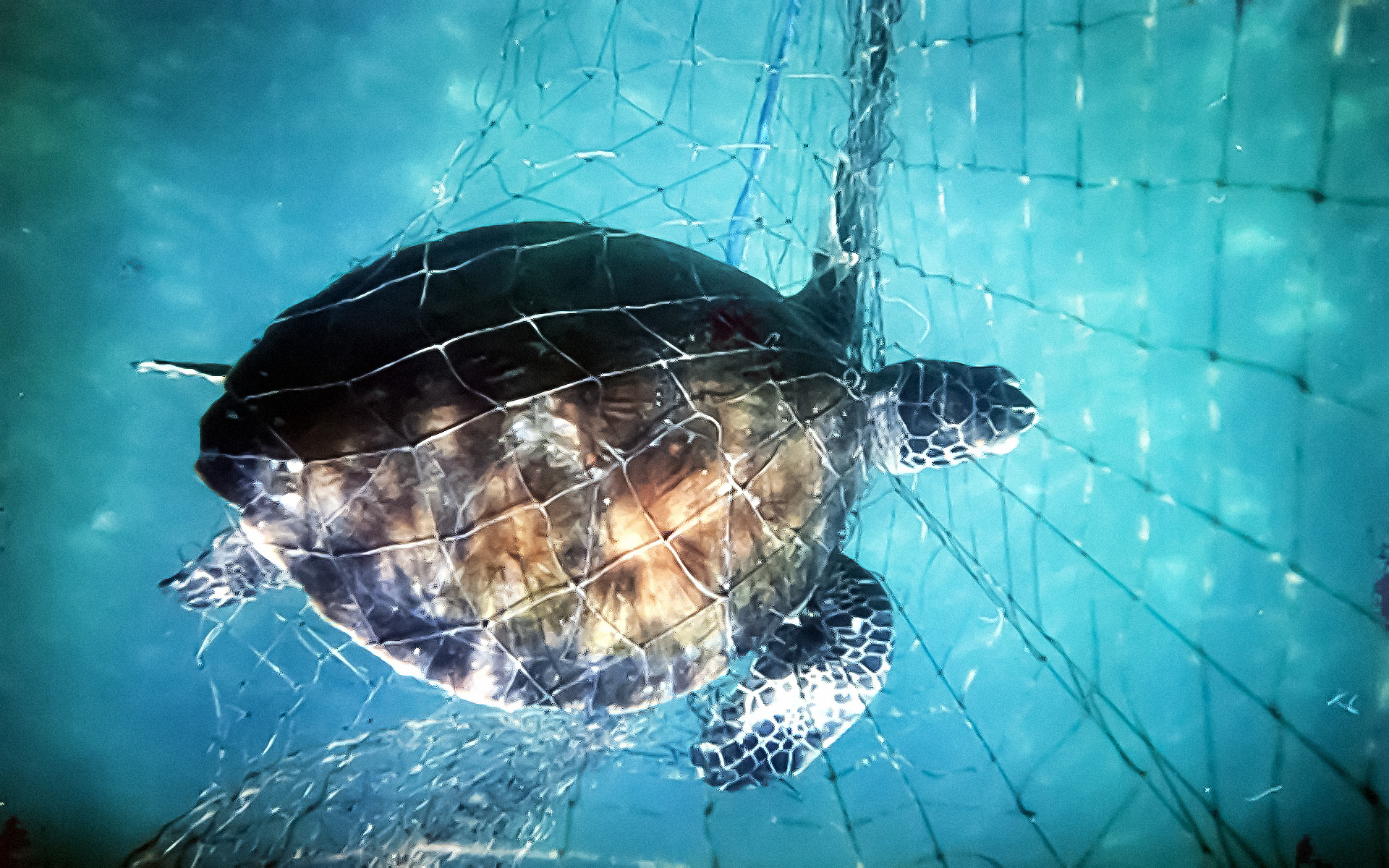The Atlantic Ocean is the second largest on the planet, its waters are home to many marine species. The South Atlantic Ocean has a unique ecosystem, one of the most productive areas in the hemisphere. Due to the abundance of renewable and non-renewable resources, it is in high demand worldwide. Floating cities are installed here every year.
In Argentina, the Exclusive Economic Zone (EEZ) extends from the coast to mile 200, giving sovereignty to the exploration, exploitation, conservation and administration of natural resources. At mile 201, where this jurisdictional limit ends, the so-called floating cities are located. These are hundreds of fishing vessels that, when night falls, turn on their lights to attract plankton and thus begin the unregulated fishing of Illex argentinus squid.

For more than 40 years, between November and May, around 600 fishing vessels have been arriving at the Patagonian continental shelf, which has a unique maritime ecosystem for industrial fishing. Most of these vessels come from China, Taiwan, South Korea and, to a lesser extent, Spain.
These boats called “poteros” arrive and settle for months to fish for squid using lights that attract the plankton that is their food. They are caught through automatic machines, with lines of ropes and lures (potas) designed for this type of fishing. Then the cleaning and packing process begins inside the vessels, which are not only fishing boats but also factories. Finally, they take everything processed to their countries of origin.
Milko Schavartzman is an Argentinean specialist in marine conservation. He has collaborated with numerous international organizations such as Oceana, and Global Fishing Watch and has been a member of the Greenpeace Oceans Campaign. He considers that this massive predation is an environmental catastrophe that causes a degradation of the ecosystem. And he argues that the number of boats has tripled in the last decades, up to 600 boats have been counted through studies with satellite data.

It is estimated that there are around 400 pot vessels and the rest are “trawlers” that use meta nets to fish day and night. The Illex argentinus squid is the second most caught squid on the planet. These cephalopods live short life spans of approximately two years. Despite their rapid reproduction, their unbridled capture represents a danger of extinction, since neither seasons nor environmental regulations are respected.
Argentine regulations take these cycles into account and fishing begins in January, but these vessels fish from November onwards and increase their catch every year. It is important to know that this type of squid is food for many other species such as hake, elephant seals, sperm whales, penguins, dolphins and seabirds, therefore the whole ecosystem depends on them.

Deregulation
Part of the problem is deregulation, as these floating cities are outside any kind of jurisdiction. Therefore, it is not known how much or what species are being fished.
In addition, these foreign fleets receive subsidies from their flag states, such as fuel subsidies. They do not respect environmental or navigational safety standards. In addition, the working conditions of the crew members have been considered forced, unhealthy and abusive, with working hours of up to 20 hours a day according to the UN National Labor Organization. Because of all this, their costs are very low and with these economic benefits they compete in international markets with others that pay taxes and comply with environmental and labor standards. This is unfair economic competition.
Local controls in the zone
According to Schavartzman, the Prefectura Naval Argentina is in charge of carrying out maritime and aerial patrols, controlling and safeguarding the entrance to the exclusive zone. This allows detecting vessels fishing illegally within the zone, intercepting them, fining them and sanctioning them. Many of these vessels turn off their automatic identification system (AIS) but are detected thanks to patrols. That is why the presence of the State is essential to protect the area but, since they operate in international waters, Argentina cannot do much.
On the other hand, the website of the Argentine Ministry of Security states that illegal fishing occurs when foreign vessels enter the EEZ without authorization. It is important to clarify that the extension of the maritime front is almost 700 kilometers, which makes it difficult to control. Vessels identified within the EEZ that turn off their AIS to hide their identity and do not obey the orders of the Coast Guard Vessels are sanctioned by the Federal Justice. However, fishing vessels operating outside the EEZ are not required to have their AIS equipment turned on. Since they operate on the high seas and are not within the International Convention for the Safety of Life at Sea (CONVEMAR), which is a regulation that makes AIS mandatory.

Bycatch
Another consequence of uncontrolled fishing is bycatch. This occurs when fish or other marine species are caught unintentionally while trying to catch a certain variety. Bycatch is a threat to many species, some of which are protected.
WWF maintains the importance of classifying catches and applying economic regulations to the phenomenon of overfishing in order to control bycatch. In addition, it emphasizes the need to adopt a sustainable fishing model to achieve a balance between the conservation of marine ecosystems and the economic needs of the fishing industry.
Schavartzman states that unreported and unregulated fishing is a time bomb. “We don’t know how much they are fishing, how many bycatch species they are catching and what the environmental impact is.”
How can this conflict be resolved?
There is an agreement approved by the World Trade Organization that prohibits harmful and unregulated fishing subsidies. There is also a bill in the Argentinean Congress to ratify this agreement and the more countries that ratify it, the sooner it will enter into force. This would make it less competitive for many of these vessels to operate, and the fleet would be reduced. On the other hand, Argentina could promote some kind of agreement, commission, or organization with countries in the region such as Brazil and Uruguay to regulate, preserve the environment and allow exploitation in a rational and responsible manner without such a negative or uncontrolled impact.
The oceans cover two thirds of our planet and contain great biodiversity. They are vital and connect us to the rest of the world. It is time we all became aware of their importance and care. And it is time for international organizations, especially developed countries, to get involved in this problem that concerns us all.





